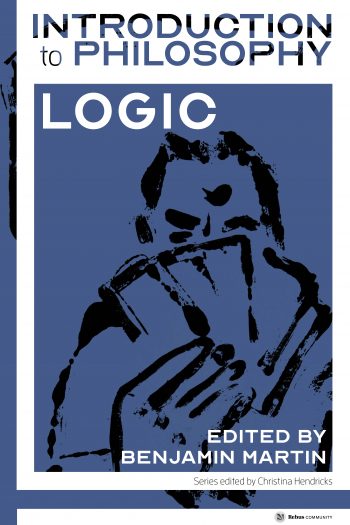I am delighted to announce the release of the third book in the Introduction to Philosophy open textbook series: Introduction to Logic, edited by Ben Martin (University of Bergen).

Introduction to Logic provides students with the concepts and skills necessary to identify and evaluate arguments. The chapters, all written by experts in the field, provide an overview of what arguments are, the different types of arguments you should expect to encounter in both philosophy and everyday life, and how to recognise the mistakes commonly made in each type of argument.
Using examples of arguments and rhetoric from both philosophy and public discourse, the Introduction is aimed not only at those who wish to learn logic to further their philosophical education, but those who wish to gain the tools to better understand how to approach arguments in everyday life. For the introductory philosophy student, the Introduction to Logic should be used in combination with other books from the Introduction to Philosophy series, applying the skills explained within the Introduction to important philosophical arguments and debates.
There are nine books planned for the Introduction to Philosophy open textbook series, each with its own editor (series editor: Christina Hendricks). With the publication of the Introduction to Logic, three of the series have now been published (see also the introductions to the Philosophy of Mind and Ethics). Books on the Philosophy of Religion, Aesthetics, Metaphysics, Epistemology, Philosophy of Science, and Social and Political Philosophy are also in progress.
The books are written for an audience of students with little to no background in philosophy, without jargon and with potentially unfamiliar concepts explained. They are designed to help students gain the necessary foundations in particular philosophical areas in order to be able to pursue further study in those areas.
Each book has a Creative Commons Attribution license that allows it to be reused free of charge, or downloaded and revised/remixed to better fit one’s own context. For example, instructors are welcome to combine a few chapters from multiple books, adding in their own work or other openly-licensed or public domain content, to create their own customized textbook.
Please see the project discussion pages on the Rebus Community platform for further information about the series, including opportunities to volunteer to help out with the other books. We also welcome questions or comments on the books or the project as a whole in that discussion space. If you plan to adopt part or all of any of the books in the series, please let us know on our adoption form!
